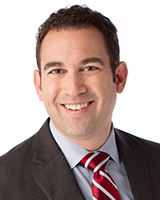State tightens background check rules for Uber, Lyft drivers


SAN FRANCISCO (KGO) -- State regulators have approved new rules for the background checks drivers must undergo before joining a ride-hailing platform like Uber or Lyft.
The unanimous vote came after a lively public comment session at a meeting of the California Public Utilities Commission.
"The military does not allow Uber and Lyft drivers onto its bases," said one man who was called on to speak. "Why? Because they don't get fingerprint background checks."
But minority advocates say fingerprinting disproportionately hurts communities of color, and the process of being fingerprinted at a police station or sheriff's office could discourage people from those communities from signing up to drive.
RELATED: Uber fires 20 employees after investigation into complaints
"I would feel intimidated to go to a police station to get fingerprinted to get a job -- and so would many members of my community," said a man speaking on behalf of the San Francisco African American Chamber of Commerce.
Other advocates fear the time required to clear a fingerprint background check could delay a desperately needed paycheck for those struggling to pay rent.
"Even those who are eligible to drive for (Uber or Lyft) could be left waiting for weeks or even months without earning an income," said Nora Penaflor of the National Diversity Coalition as she addressed commissioners.
But regulators knew something needed to be done. Last year, Uber agreed to pay $25 million to settle a lawsuit filed by San Francisco's district attorney, alleging as many as 25 drivers were working for Uber with criminal histories, after they slipped through the cracks of the company's background check system.
"If you have a fingerprint background (check), the fact that they were arrested and convicted would show," said San Francisco District Attorney George Gascon when the lawsuit was filed.
Before deciding, commissioners conducted a public survey and found riders were evenly split on the subject of fingerprinting drivers. Commissioner Liane Randolph said the commission's research found that law enforcement agencies don't always require a photo ID when taking an applicant's fingerprints -- an omission she believes makes fingerprinting less of an improvement over the existing system.
Commissioners agreed on a compromise: stricter rules that disqualify drivers for rape, murder and kidnapping convictions, even if they happened more than seven years ago. The new rules also require drivers to submit to a new background check every year if they want to keep driving.
"Previously, there was no requirement for updating the background check," Randolph said. "A driver would be checked, join the platform, and that was it."
Uber and Lyft both issued written statements in response to the unanimous vote.
"We are encouraged by their decision, which promotes both public safety and economic opportunity for California drivers," said Uber's statement.
"Today's CPUC decision recognizes the strength and effectiveness of our current background check process," said the statement from Lyft.
Both companies have acknowledged that background check are not perfect -- and none can predict the future. The man accused in the deadly truck attack on a Manhattan bike path was also a driver for Uber and Lyft. He had no criminal history.








